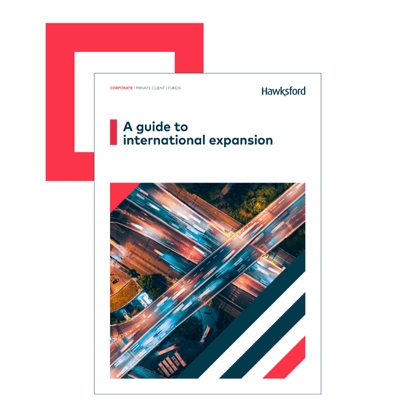A recent Hawksford roundtable event highlighted how UAE free zones are welcoming new business activities outside their traditional silos.
For years now, free zones in the UAE have proved a compelling proposition for businesses looking to establish a presence in the country or use as a base of operations into the wider Middle East and North Africa (MENA) region. Offering tax advantages, streamlined business setup, modern infrastructure and a pro-business environment, they have attracted organisations and entrepreneurs from across the globe.
Historically, free zones have specialised in a relatively narrow set of specific sectors and industries, creating ecosystems that are conducive to businesses that operate in those sectors. The key has typically been in the name – the Dubai Multi Commodities Centre (DMCC), Dubai Internet City and the Dubai International Finance Centre (DIFC) being key examples.
Yet while many free zones have retained a defined sector focus, there are others that have expanded their remit, incentivising new industries and capturing significant market share and foreign direct investment in the process.
A recent exclusive roundtable event in London – organised by Hawksford, in association with DMCC – highlighted this economic diversification. Ahmed Bin Sulayem, Executive Chairman and Chief Executive Officer, DMCC, explained that as a leading international business district, DMCC is now home to more than 26,000 companies, and has grown way beyond its original commodities focus. “DMCC is now the largest and fastest growing free zone for the oil and gas and renewable energy sector, with more than 3,600 companies”, he told participants.
Bin Sulayem also highlighted how DMCC has found a new market among tech companies – with more than 3,400 tech and fintech companies established here – a sector that had previously found its home in dedicated tech-focused free zones.
Government initiatives
There are a number of drivers behind this expansion beyond their historic ‘silos’. On the one hand, there are a host of government initiatives that have increased the attractiveness of the UAE in general, and free zones in particular.
As Tom Reynolds, Partner at Trowers and Hamlins, noted: “For decades, the UAE has consistently remained an exceptional place for international businesses to operate. In recent years, that's been even more the case. Evolving policy, such as liberalisation to allow 100% foreign ownership, has enabled businesses to seamlessly grow into the Middle East markets and to use the UAE as a base.”
In 2025 alone, both the governments of Dubai and Abu Dhabi implemented new rules to create further opportunities for businesses both in free zones and mainland UAE. In Abu Dhabi, for example, regulations issued in February allowed firms registered in other Emirates (including their free zones) to open branches without requiring physical premises for the first year, helping remove barriers and promote investment and trade.
As Bassel Bitar, Regional Representative – Asia & Eastern Europe, DMCC, pointed out, such developments have happened alongside changes to help facilitate immigration. “The introduction of the Golden Visa and the Green Visa in Dubai has created real opportunities for investors, entrepreneurs and highly skilled individuals to become resident in the Emirate,” he said. “This has allowed free zones to tap into the best talent.”
Free zones leading the charge
As much as government incentives help pave the way for business and trade, the free zones themselves have to be open to moving beyond their recognised sectors – be that through the formation of partnerships or by listening and being responsive to requests from new businesses looking to establish there.
“Take a step back five years ago, when we first established our crypto centre,” said Bitar. “This was a collaboration between DMCC and CV Labs, a leading crypto centre in Switzerland. We started with 3,000 square feet of co-working space, and now the centre is home to 700 companies in total.”
As Bin Sulayem noted, the success of DMCC’s expansion required not only an open appetite from top management to adopt and be flexible with regard to new business activities, but a willingness to introducing new regulations. This included signing agreements with the courts so that disputes are settled in common law, as well as the introduction of a framework for the creation of special purpose vehicles and other company structures that didn’t exist previously.
The importance of partnership
While the opening up of free zones to new sectors is exceptionally positive, it does beg the question: how can businesses looking to establish themselves in Dubai choose between one free zone and another if those sector specialities are being broken down?
On the one hand, the business environment is vital. As Bin Sulayem noted: "Our role extends far beyond issuing a business licence – it is about building an environment that enables access to funding, collaboration, networking, and true ease of doing business. DMCC has pioneered specialised ecosystems across major industry segments, from commodities such as gold and diamonds to advanced technology, finance, and high-value services.”
“We are now advancing our newest ecosystem, the DMCC Financial Centre, which will be formally unveiled during the Dubai Precious Metals Conference,” he added. “ This centre will provide a formal structure and streamlined services to more than 1,620 companies in our district across banking, insurance, family offices, fintech, and investment – forming part of a broader architecture that links trade to capital, digital innovation to regulation, and physical commodities to liquid markets.
“Today, our wider community of more than 26,000 companies includes some of the highest industry concentrations in the region. Combined with fast, fully digital business-setup services and world-class commercial real estate in JLT and Uptown Dubai, this model supports 15% of Dubai’s foreign direct investment and 7% of its GDP."
For Daniel Hainsworth, Global Head of Corporate Services, Hawksford, working with a partner who understands the broader UAE business landscape and what specific free zones have to offer is critical. “Years ago, businesses had an obvious choice of free zone based on the sector they operated in,” he said. “Now, it may well come down to choosing the free zone that works for your business – and companies such as Hawksford that have feet on the ground and understand certain free zones inside out, can help with that decision.”
It's a sentiment that was echoed by Tom Reynolds, who noted: “With a wider choice than ever, there is real need to have the right local partners and local employees to help make business growth a reality – it's the people you know and the depth of relationships that will drive long-term success.”
How Hawksford can help
With an established presence in DMCC since 2018, Hawksford has a deep understanding of Middle Eastern markets. This – combined with multilingual teams and strong network of in-region partners – ensures their dedicated Dubai team is perfectly placed to provide end-to-end support for businesses looking to establish, operate, or expand in the region. To find out how Hawksford can help your business succeed in the UAE and beyond, visit our Middle East market focus page, and get in touch today.

Speak to our experts today
Get in touch with our Funds team to find out how we can support you with your fund administration and governance needs.
Updated on



